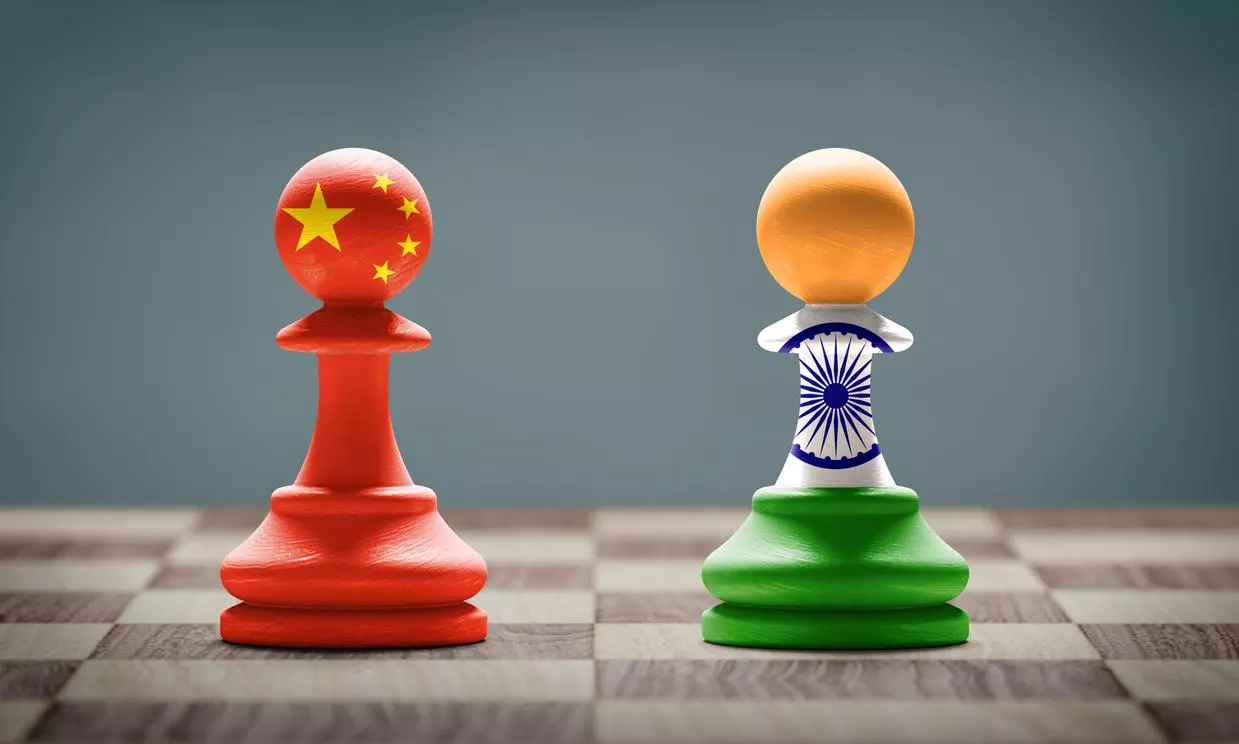
- Home
- India
- World
- Premium
- THE FEDERAL SPECIAL
- Analysis
- States
- Perspective
- Videos
- Sports
- Education
- Entertainment
- Elections
- Features
- Health
- Business
- Series
- In memoriam: Sheikh Mujibur Rahman
- Bishnoi's Men
- NEET TANGLE
- Economy Series
- Earth Day
- Kashmir’s Frozen Turbulence
- India@75
- The legend of Ramjanmabhoomi
- Liberalisation@30
- How to tame a dragon
- Celebrating biodiversity
- Farm Matters
- 50 days of solitude
- Bringing Migrants Home
- Budget 2020
- Jharkhand Votes
- The Federal Investigates
- The Federal Impact
- Vanishing Sand
- Gandhi @ 150
- Andhra Today
- Field report
- Operation Gulmarg
- Pandemic @1 Mn in India
- The Federal Year-End
- The Zero Year
- Science
- Brand studio
- Newsletter
- Elections 2024
- Events
- Home
- IndiaIndia
- World
- Analysis
- StatesStates
- PerspectivePerspective
- VideosVideos
- Sports
- Education
- Entertainment
- ElectionsElections
- Features
- Health
- BusinessBusiness
- Premium
- Loading...
Premium - Events

Rather than Delhi’s a-friend-in-a-country strategy, Beijing’s multi-alignment plan is working well in Bangladesh, Myanmar and Nepal
India's erudite and sharp-talking foreign minister S Jaishanker has repeatedly stressed the need for multi-alignment in India's outreach to major powers.
But, in the neighbourhood, India seems stuck with 'a friend in a country' legacy — Nepali Congress in the Himalayan country, and Awami League in Bangladesh. It is China that seems to successfully have played the multi-alignment game in India's neighbourhood in one country after another.
Sample these three cases.
First case — Mayanmar
The rebel Arakan Army, which has captured much of Myanmar's Rakhine and parts of Chin State in a fierce offensive launched in November, has not touched the China-funded Kyaukphyu deep-sea port in Rakhine that holds the key to the success of the China-Myanmar land-to-sea economic corridor, despite its fighters reaching the outskirts of the port area.
This in spite of the evident support and backing that the Myanmar military junta enjoys from Beijing, which managed to secure at least 15 major mega-infrastructure projects in the country since the February 2021 coup brought the junta to power.
The Arakan Army (AA) was formed in the Kachin State in 2009 and developed a close rapport with China, which emerged as its main source of weapons supply. As is the case with all the northern rebel groups in the Brotherhood Alliance whose Operation 1027 offensive has led to a string of huge defeats for the Tatmadaw (Myanmarese army).
Chinese weapons
But China is also the principal supplier of military hardware. “No exaggeration to say the present Myanmar conflict is largely fuelled by Chinese weapons to all major combatants. It is having the cream from all sides,” says Myanmar analyst Tina Moe Htwe.
And, India has obliged the Myanmar junta by launching Operation Sunrise in two phases against AA bases on the Mizoram-Myanmar border, after which the AA targeted barges carrying construction material for India's Kaladan Multimodal transport project.
In 1998, the Indian army ‘betrayed’ the National Unity Party of Arakan (NUPA), the AA's predecessor organisation, by killing its top leaders after having invited them to the Andamans for secret parleys — something that Nandita Haksar's book Rogue Agent exposes in great detail.
“So, the Arakanese rebels, who are all set to run a parallel government in two key provinces bordering India through which India's KMMT (Kaladan Multi-Modal Transit Transport Project) project passes, are okay with the Chinese but not so with the Indians. This is a far cry from the early 1990s, when they were so friendly with India,” says former Intelligence Bureau official Benu Ghosh.
Second case — Bangladesh
The second case is Bangladesh, where the leading Opposition party BNP has launched an ‘India Out’ campaign on the lines of Maldives' present ruling party led by President Mohammed Muizzu that helped him come to power.
Leading social media outlets supporting the BNP have called for wholesale boycott of Indian products to “punish India for supporting Prime Minister Sheikh Hasina's return to power by fraudulent means”.
Bangladesh is now India's fourth largest trade partner and could soon be the third.
A trade boycott would hurt India because its exports to Bangladesh would soon cross the $20 billion mark. YouTuber Pinaki Bhattacharya also called upon Bangladeshis to stop visiting India for tourism of all kinds — medical, educational or sightseeing — to give India “a taste of its own medicine it tried on Maldives”.
Trade boycott
The irony is that no one even in the Bangladesh Opposition is calling for a boycott of Chinese goods, though Beijing has defended Hasina's return to power as firmly as Delhi has.
Bangladesh will turn more to China as its economy deflates over loan repayment pressures, higher global energy prices and extensive money laundering by Hasina's cronies.
And, like in Pakistan, China will extract its pound of flesh in Bangladesh, because the Sheikh Hasina government already sees Beijing as more important than Delhi for two reasons — it has the UN Security Council veto and it has deep pockets to bail Bangladesh out of a serious economic crisis that it seems to be heading for.
Third case — Nepal
The third case is Nepal, where India is stuck with its traditional favourite, the Nepali Congress. It scored a winner when Maoist leader Prachanda left the Communist Party led by KP Sharma Oli and Indian intelligence managed to stitch together an alliance between Prachanda's Maoists and the Nepali Congress led by Sher Bahadur Deuba.
But, India could not push Deuba to accept a rotation of the PM seat with Prachanda, leaving the field open for China to stage a comeback by stitching together an Oli-Prachanda alliance that left the Maoist leader in the PM seat.
Indian intelligence lost the game in Nepal because Deuba, brought to power by Indian intelligence, refused to listen to Delhi and paid for it with defeat.
Hasina vs Deuba
Sheikh Hasina, like Deuba, is a traditional favourite who has decimated the ranks of pro-liberation India, friendly politicians within her party and government shrewdly managing to keep Delhi happy by doling out a lucrative power purchase agreement to the Adanis just before the G20 summit in Delhi in the rundown to the polls.
The difference between the two leaders is that Deuba remains steadfastly loyal to India while Hasina is increasingly turning toward China for external support and toward an Islamist agenda (the construction of 560 Ideal Mosques-cum-Islamic Cultural Centres is one such project) domestically to keep her rivals in the Islamist BNP-JAMAAT coalition at bay.
No choice for India?
The choice of Hasan Mahmud , known for his close family and personal links to the radical Hifazat-e-Islam, as foreign minister in preference to former foreign minister Mahmud Ali (a top-notch diplomat) is a case in point. Ali was given the finance portfolio.
Hasina revels in the fact that India “has no choice but to support me for all that I have done for India”.
Any major power creates options rather than remain stuck with a lack of it.
(The Federal seeks to present views and opinions from all sides of the spectrum. The information, ideas or opinions in the articles are of the author and do not necessarily reflect the views of The Federal.)


